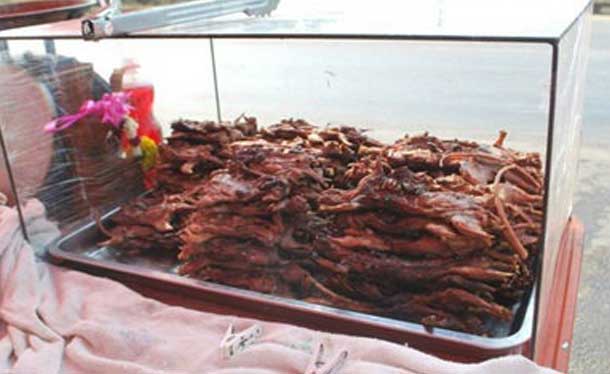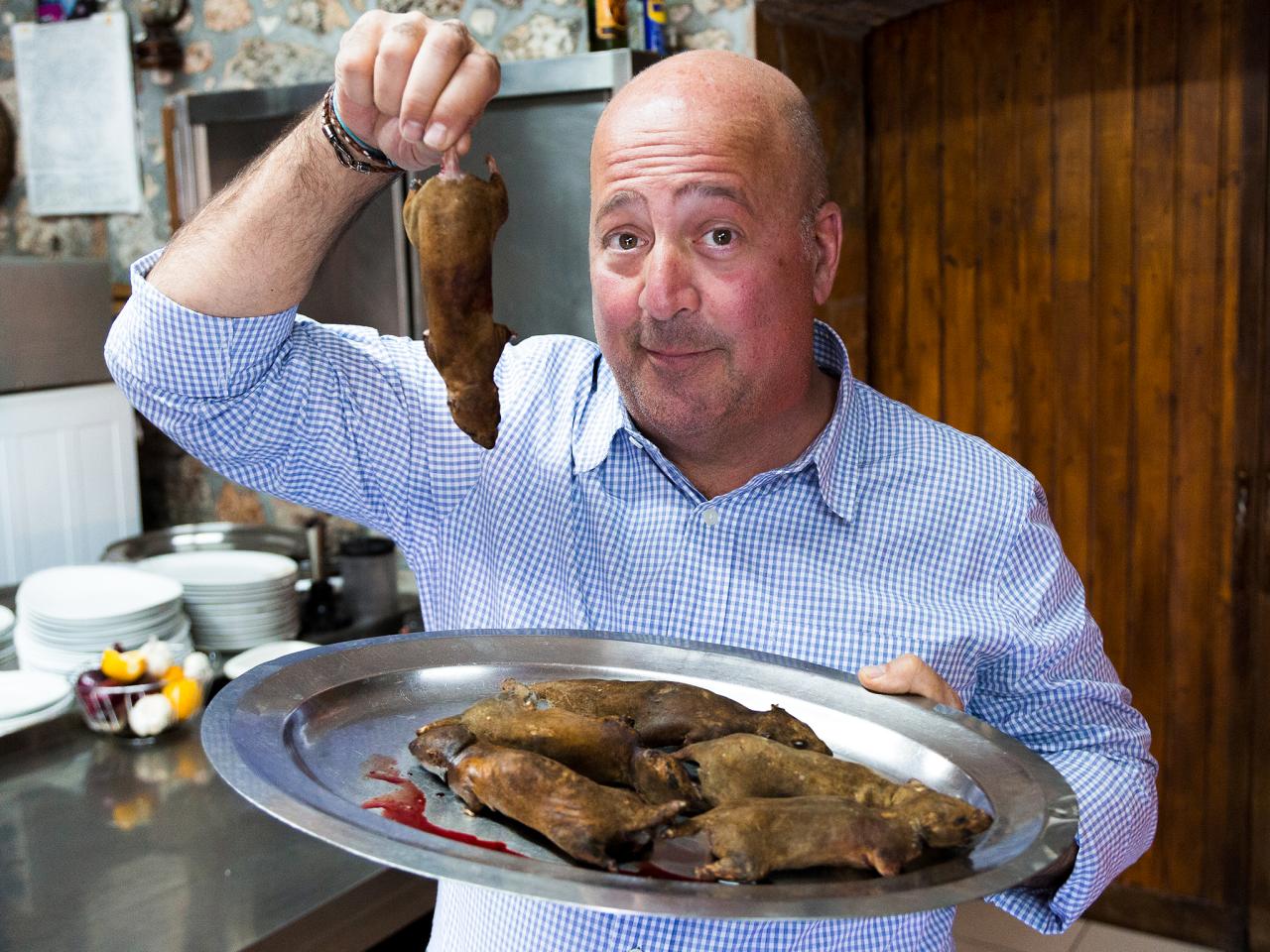The price of Rat meat goes up in Thailand
I rarely copy a news story but a story about eating rats I can't pass up. This story from PDN about the price of rat meat in Phitsanulok. Before you think that's it's only poor farmers eating rats, the cost of rat meat is double that of chicken and pork. This lady says it costs 250 baht a kilogram for a big rodent, not that i'm noting to buy a whole kilo of it! Still I've eaten rat meat and although I prefer fried frog, fried rat isn't too bad either. Have you tried it?

On a winter’s day, a reporter driving in Phitsanulok province noticed a big poster on the side of the road, which said “Grilled Rats.” The sign was on the roadside along the route going from Sukhothai to Pitsanulok in Tambon Phaikhordorn, about 10 km from Phitsanulok.
The reporter stopped and talked to the rat-selling owner, Mrs. Somboon Yuyen, age 50, who lives on Tharmmul road, Amphur Meuang, Chainart province.
She said that selling grilled rats is a business that provides revenues to many families in the area. In winter, many local people like to eat grilled rats and come to buy her rats. Sometimes there are so many customers, she runs out of grilled rats to sell.
Mrs. Somboon has been selling grilled field rats for about 7 years. In the decade before that, she used to mainly catch the field rats to sell to the grilled rat shops. Back then the price would be 30 THB per kg. Her revenue would total only 200 THB per day.
Then the wholesale rat prices increased to 80-100 THB per kg. However, the grilled rats had a higher price of 150 THB per kg. So Ms. Somboon and her husband began to catch the field rats to grill and sell themselves.
The rat-grilling business was going well, with a steadily increasing number of consumers. So Mrs. Somboon began to go to other provinces to buy more field rats in the lower northern and central Thailand areas.
She bought field rats from rice field owners that fetched high prices according to the demands of the sellers. Prices would average 100 THB per kg of rats, but sometimes reached 150 THB per kg. Mrs. Somboon would freeze the rats and store them, to be grilled later for hungry customers.
Mrs. Somboon said there seems to be more demand for grilled rats than in the past. So she has been traveling around and selling her rats in many lower north provinces, including Chainart province, Pijit province and Pitsanulok province. Business has been good in Phitsanulok, where she has been selling rats for five months, so she has no immediate plans to move.
The prices for her rats vary according to size. For the small size rats, the price is 200 THB per kg; the medium size rats sell for 220 THB per kg; and big rats sell for 250 THB per kg.
Although she considers the prices of rats to be expensive, the people who like to eat rats consider it a cheap price to pay. For people who want to grill their rats at home, her frozen field rats are priced at 180 THB per kg.
Some customers buy 3-5 kg of frozen rats each time to store in their refrigerators, and also buy rats for their relatives and friends. Most of her customers are local people, and some are drivers passing by who notice her shop.
Selling grilled field rats is an occupation that Mrs. Somboon is proud of, and can generate revenues up to 1 million THB a year. Mrs. Somboon averages more than 2,000-3,000 THB daily in sales. During the festivals, she can earn more than 10,000 THB daily.
Mrs. Somboon now enjoys a better financial status because of her business. She bought a pickup truck to buy more rats in many places, and can now build her own house from the money she made selling rats.
